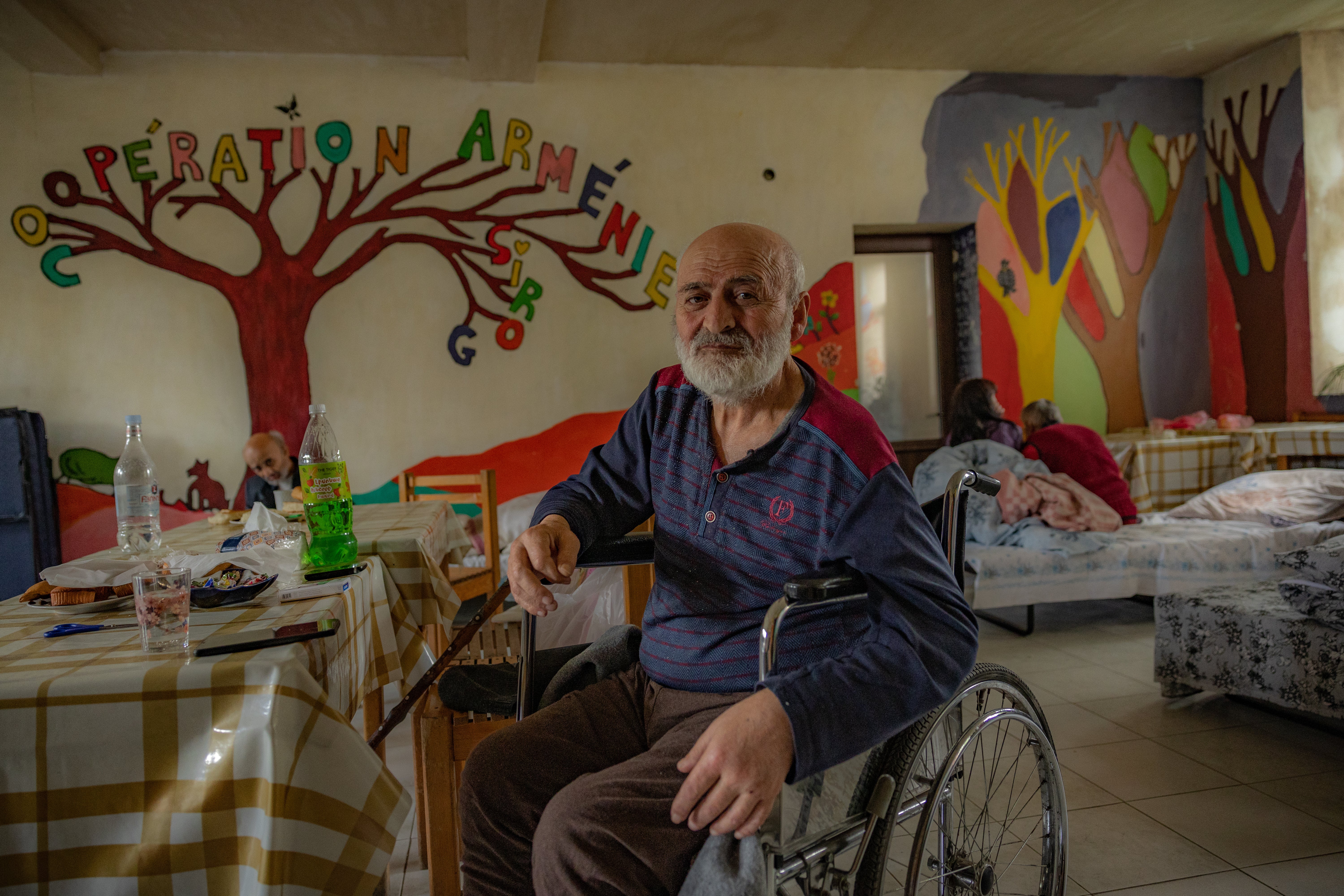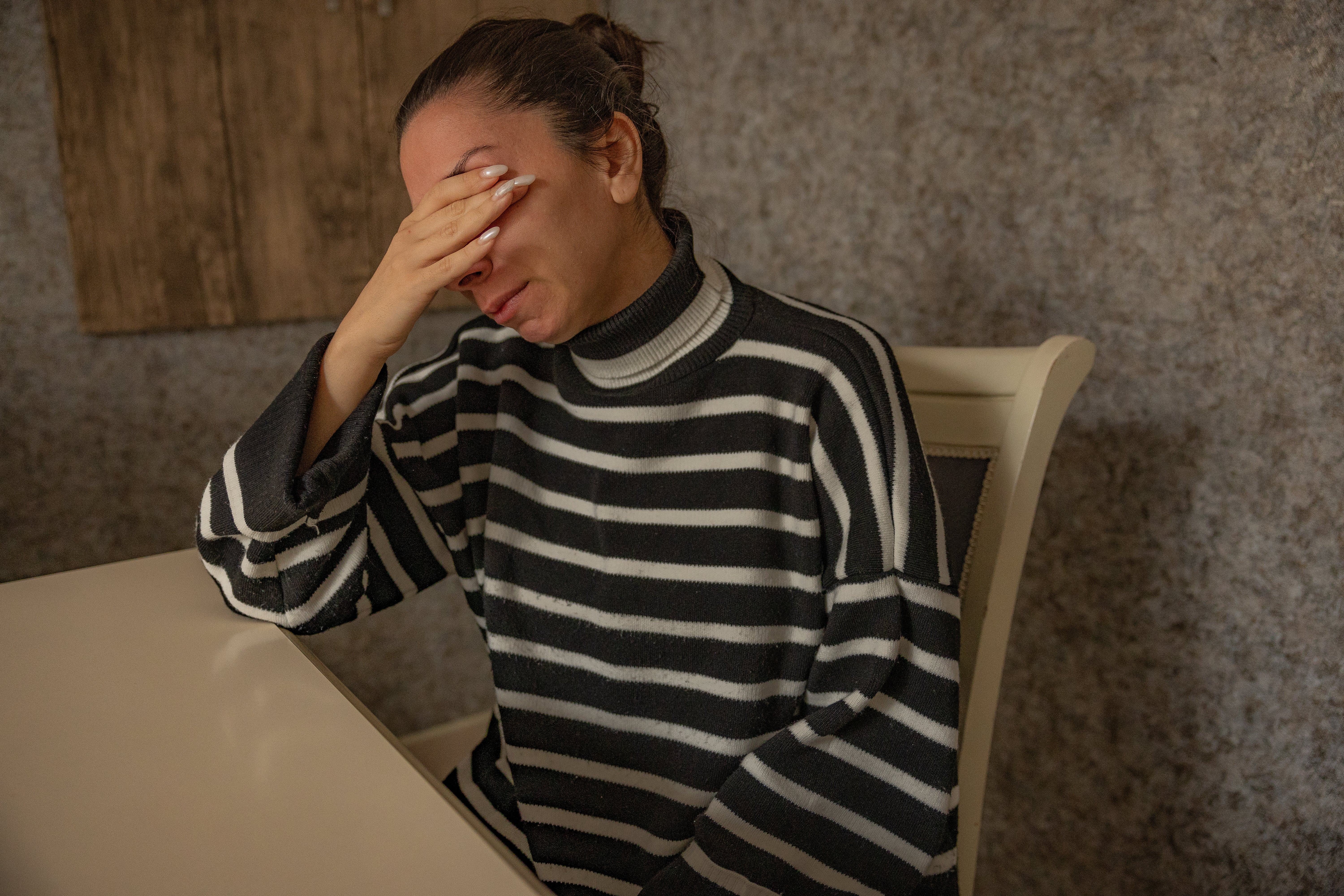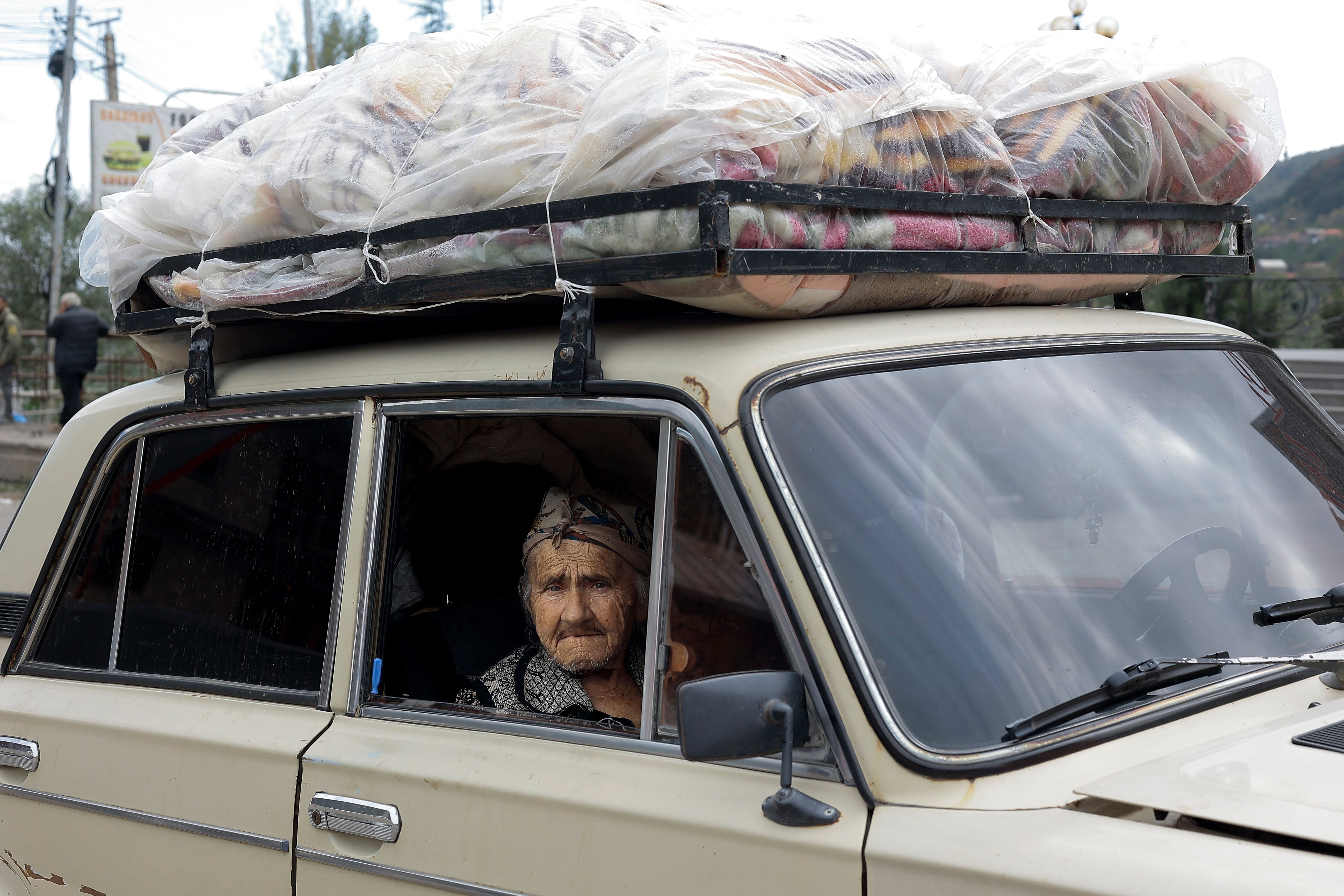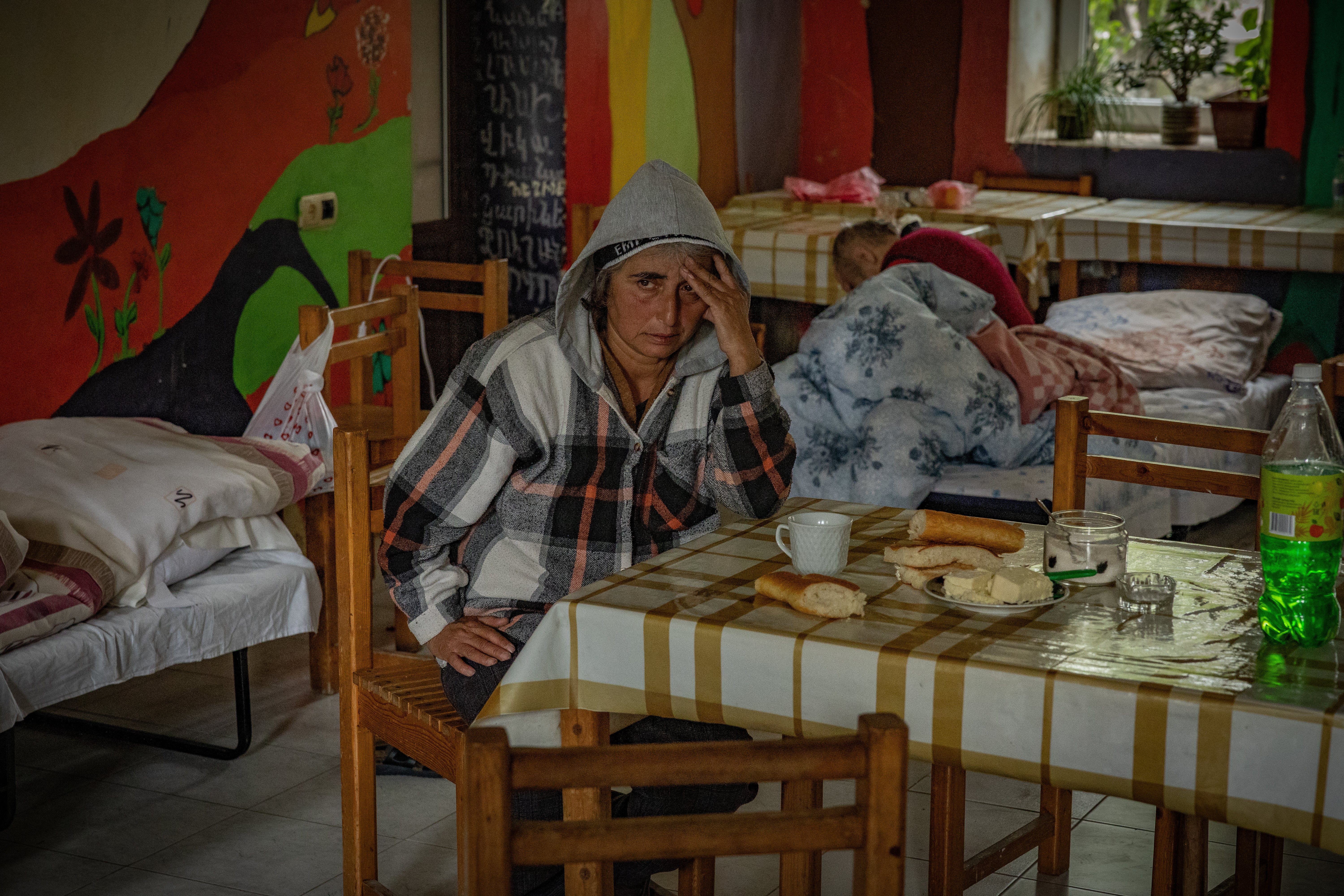‘We still don’t know if my brother made it’: Armenians fleeing Nagorno-Karabakh worry for missing relatives
In just a few days more than 100,000 people have fled the separatist enclave, fearing persecution as Azerbaijani forces closed in, Bel Trew writes


Your support helps us to tell the story
From reproductive rights to climate change to Big Tech, The Independent is on the ground when the story is developing. Whether it's investigating the financials of Elon Musk's pro-Trump PAC or producing our latest documentary, 'The A Word', which shines a light on the American women fighting for reproductive rights, we know how important it is to parse out the facts from the messaging.
At such a critical moment in US history, we need reporters on the ground. Your donation allows us to keep sending journalists to speak to both sides of the story.
The Independent is trusted by Americans across the entire political spectrum. And unlike many other quality news outlets, we choose not to lock Americans out of our reporting and analysis with paywalls. We believe quality journalism should be available to everyone, paid for by those who can afford it.
Your support makes all the difference.The last time Erna heard from her brother was a week ago, in the frantic rush to escape Nagorno-Karabakh as it dissolved around them.
In just a few days more than 100,000 people – nearly the entire local ethnic Armenian population – fled the separatist enclave, fearing persecution as Azerbaijani forces closed in. Mobile phone networks were down, the only road out was at a standstill and people found themselves separated by the shelling.
And so in that chaos, people went missing and families lost each other. The United Nations said children were arriving in neighbouring Armenia unaccompanied. There were reports of people being detained by the Azerbaijani authorities, and the Armenian health ministry said some people, particularly the elderly, died while on the 40-hour journey due to malnutrition and a lack of medicine.
“We still don’t know if my brother made it to Armenia, if he is alive,” the school administrator, Erna, tells The Independent in tears from Goris, a border town that has quickly morphed into a massive refugee camp.
Behind her is a flurry of activity: shellshocked families pick through piles of donated clothes, food and supplies as they try to work out how to piece together their lives. “We last heard from him as he was going to get fuel,” Erna’s son, David, 18, continues as his mother appears too overwhelmed to continue the story.
The family fear he may be among the 170 killed in a massive explosion last week at one of the few petrol stations still operating in the enclave. On Monday desperate refugees had flocked there to secure fuel to get out when the blast occurred. No one knows exactly what happened but it added another layer to the tragedy.
They are not alone, says Lusine Barkhudaryan 30, who until last week was deputy minister of infrastructure for Nagorno-Karabakh’s self-declared government. Now the former lawyer is camping at a hotel in Goris, having, like tens of thousands of others, left everything behind.
“One of my colleague’s husband is missing and two neighbours are also unaccounted for, they were separated during the rush to get out,” she tells The Independent, dissolving into tears.

“I know of another woman who is looking for her husband, brother and father. They may have died in the petrol station but they don’t know. They are still trying to find them.”
With so many unaccounted for in the confusion, the International Committee of the Red Cross (ICRC) together with the Armenian Red Cross have just set up a hotline, which people can call to register their missing.
“So far we are getting 100 calls a day,” Zara Amatuni, an ICRC spokesperson, tells The Independent. “It is difficult to provide credible information for the time being because the situation is evolving so rapidly.”
Finding the missing is just one of the nightmares facing Karabakh Armenian families and Armenia itself, as it reels from the biggest movement of people in the South Caucasus since the collapse of the Soviet Union.
Tens of thousands of now-homeless people are on the move camping in hotels, schools, private homes, in their cars and even the streets, after they left their homes and homeland that no longer exists. The Armenian government said they have so far managed to temporarily house some 32,000 in state facilities but the question of what to do in the long term remains unanswered.

No one was prepared because the situation unfurled with such alarming speed after Azerbaijan launched a lightning military campaign against the breakaway forces last week. Baku wanted to take back the majority ethnic Armenian enclave that is internationally recognised as being part of Azerbaijani but has enjoyed de facto statehood for three decades.
In the 10 months leading up to the 24-hour blitz, the Azerbaijanis had imposed a blockade strangling food, fuel, gas and water supplies to the area. Weakened by the siege, outnumbered and outgunned by a military bolstered by Turkey, the Armenian separatist forces capitulated almost immediately. Their political leaders said they would dissolve their government by the end of the year, triggering the exodus.
Reports of the arrest of senior Karabakh officials, including former ministers and security officials, added to the panic. On Sunday Azerbaijan said it issued an arrest warrant for the head of the enclave Arayik Harutyunyan. Now 80 per cent of the 120,000 residents have packed up their lives in a few minutes and crossed into Armenia.
There, Armenian officials told The Independent they were struggling to accommodate them. Yerevan has accused Azerbaijan of “ethnic cleansing”. Baku has vehemently denied the accusations, saying the families chose to leave of their own accord.

“In the 2020 conflict, we had a similar issue but people knew they would return after a ceasefire. That is not the case now,“ Gnel Sanosyan, Armenia’s minister of infrastructure, says with exhaustion. He is standing by a packed registration centre in Goris, where hundreds of people are being registered by Armenian officials manning dozens of computers.
“We are trying to pool all the state institutions together to handle the situation. The Armenian government is trying its best but the international community needs to step up and help”.
Pressure is mounting on Armenia. Its citizens have taken to the streets demanding prime minister Nikol Pashinyan resign because they blame him for failing to defend Nagorno-Karabakh. The government was already struggling financially and now needs to provide housing, medical care and jobs for tens of thousands of new people who are increasingly scattered across the country.
In Vayk, a tiny mountain town dealing with the overflow from Goris, local administrative leader Hayk Avagyan says they have quickly passed the capacity of the local hotels and public shelters. “We started sending them to private houses,” he says with desperation. “There are many things to think about in the future like jobs and education.”
In Goris, families are struggling to work out their future. Lusine Barkhudaryan, the former Karabakh official, says that legally Karabakh Armenians do not have the right to social benefits or welfare that Armenians do despite being Armenian passport holders. Finding work will be tricky, she adds.
“And I didn’t bring anything with me, not even a glass from my kitchen to drink water with,” she says.
Erna’s family, meanwhile, are still trying to locate family members before they can even make solid plans for the future.
“We are going to the capital Yerevan to hopefully rent a flat,” says Erna. “What can we do? What should the world do? It’s too late.”




Join our commenting forum
Join thought-provoking conversations, follow other Independent readers and see their replies
Comments